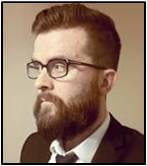On 14-19th July, Dr. Dave Dawson, Dr. Nima Moghaddam, and Dr. Aidan Hart will be attending and presenting at the 13th Association for Contextual Behavioural Science (ACBS) World Conference in Berlin, Germany. The ACBS is dedicated to the advancement of functional contextual cognitive and behavioral science and practice so as to alleviate human suffering and advance human well being. A core interest of this conference relates to research and practice associated with ‘Acceptance and Commitment Therapy’; an evidenced based psychological therapy designed to increase ‘psychological flexibility’ through mindfulness and behavioural change strategies.
Dr. Dawson and Dr. Moghaddam will be presenting 4 research posters at the ACBS conference (all of which were led by trainees enrolled on the Clinical Psychology Doctorate at the University of Lincoln). These include:
1) “Developing a new repeatable measure of ACT processes”. This poster will report on the development of the ‘Complete measure of ACT Processes’ (CompACT); a new measure of the core processes underpinning psychological flexibility (a central tenet of Acceptance and Commitment Therapy). The core features (i.e., scoring, items, factor structure) and psychometric properties of the CompACT will be presented. It is hoped that this new measure will be a valuable contribution to the ACT (and clinical psychology) literature.
2) “Acceptance and Commitment Therapy for Public Speaking Anxiety – a Case Series Study of Effects on Self-reported, Implicit, Imaginal, and In-vivo Performance Outcomes”. This poster will report a multiple case experimental design looking at the efficacy of self-help Acceptance and Commitment Therapy (ACT) in treating public speaking anxiety. Treatment-based change was evaluated using the above-mentioned ACT process measure and the Implicit Relational Assessment Procedure (IRAP). The findings have implications for the delivery of ACT in a self-help format for client’s wishing to address their public speaking difficulties independently (or for clients with wider social anxiety who do not seek treatment).
3) “Acceptance and Commitment Therapy for Chronic Fatigue Syndrome: A case series approach”. This poster will report a multiple single case series approach to the efficacy of using ACT to treat Chronic Fatigue Syndrome; a disabling and not uncommon disorder associated with a poor reported quality of life. Treatment-based change was assessed over-time using self-report, the IRAP, and behavioural activity measured via wearable technology. The results provide valuable insight into the use of ACT with this particular disorder.
4) “Regulating Eating through Acceptance and Commitment Therapy (RE-ACT)”. This poster will report a study using AB single case series design to evaluate the effectiveness of a guided ACT self-help intervention for weight management of emotional eaters. Six participants took part in a five week guided self-help ACT intervention involving the completion of a range of implicit, explicit, and behavioural assessments. Preliminary results indicate that the intervention resulted in increased values pursuance, with participants reporting positive experiences about treatment.
In addition, Dr. Hart will be presenting a poster entitled “Using Implicit Measures to Predict Known Groups: An IRAP v IAT Comparison“. In conjunction with his co-author (Dr. Ross Bartels), Dr. Hart used the Implicit Association Test (IAT) and Implicit Relational Assessment Procedure (IRAP) to measure women-sex and men-sex associations in a sample of self-identifying heterosexual women (n = 92) and men (n =91). The scores from each measure were subjected to binary logistic regression and discriminant function analysis to determine their ability to differentiate between groups (i.e., heterosexual women and men). The results contribute to the known-groups validation of each measure and provide further insight into the beliefs underlying sexual interest in non-offending heterosexual men and women.
We wish the speakers all the best at the ACBS conference!

